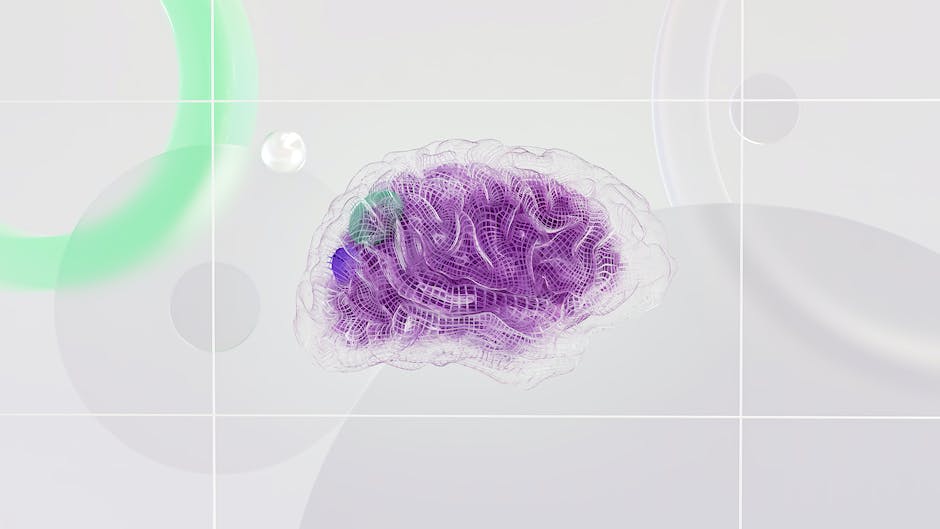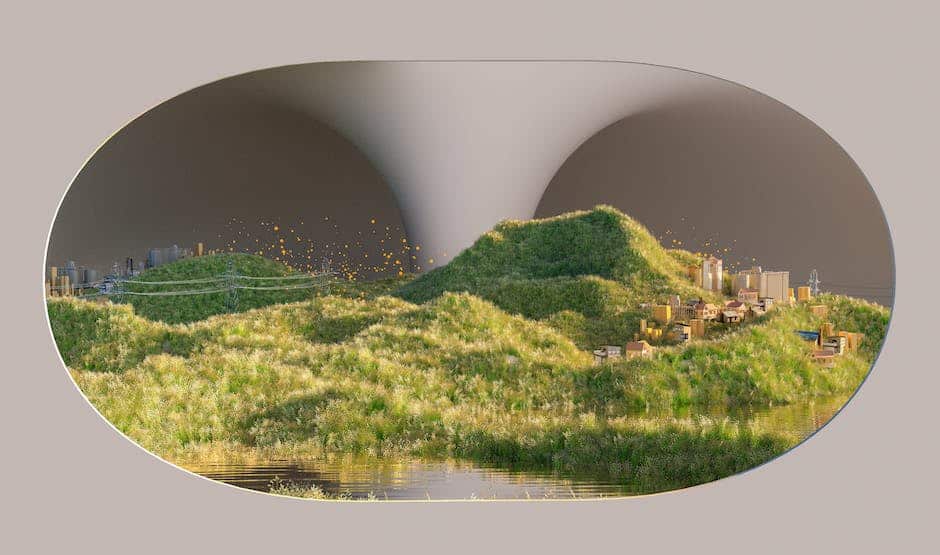In an age where technology continues to redefine the boundaries of creativity, artificial intelligence (AI) has emerged as one of the most influential drivers of change. Think of AI and the mind conjures images of autonomous cars and voice assistants, but there’s a lesser-known yet just as significant area where AI has started to make its mark – content creation. Today, AI holds the pen, painting a new picture of what content generation can be, from journalism and entertainment to advertising. This penetrating look into AI content creation explores its origins, applications, and types such as natural language generation and machine learning as well as the pros and cons inherent in its use.
Exploration of AI Content Creation
AI content creation refers to the use of artificial intelligence in creating content that matches the creativity and complexity of human writers. This process employs advanced programming and algorithms to produce written content, videos, and even music. The concept has evolved significantly over the years, bringing about a new epoch in digital content creation.
The Brief History of AI in Content Creation
AI has been used in content creation for more than a decade. In 2010, a company called Narrative Science introduced automated narrative generation with their program, Quill. It turned raw data into narrative reports by utilizing a field of AI known as Natural Language Generation (NLG). This marked a significant milestone for AI content creation.
Over the years, AI has been refined and improved thanks to the advancements in machine learning, deep learning, and natural language processing technologies, resulting in more sophisticated content creation tools.
AI in Journalism, Entertainment, and Advertising
Integrating AI into these fields has resulted in a streamlining of content creation processes. In journalism, content-generating AI has been used to write reports and articles on topics that are data-intensive, such as finance and sports. News agencies like Associated Press and The Washington Post have adopted AI content creation.
In the entertainment industry, AI has been utilized to create scripts for movies and TV shows, assist with animation, and create AR/VR content. AI is also a significant part of the advertising industry, helping to generate ad copies and devise marketing strategies based on consumer behavior analysis.
Types of AI Used in Content Creation
One of the main types of AI used in content creation is the Natural Language Generation (NLG). It helps AI to understand context, idioms, grammar rules, and style nuances to produce content indistinguishable from that written by humans. It is especially useful for generating written content and speech for virtual assistants.
Another key AI technology used in content creation is Machine Learning (ML). ML algorithms allow AI to learn from data inputs and improve over time. They can identify patterns, make decisions, and produce results. In the context of content creation, ML can help in creating customized content and improving content quality by learning from consumer feedback and preferences.
Embracing the AI Content Revolution
Content creation has been dramatically changed by AI, introducing an exciting new era of possibilities and opportunities. While we’re not quite at the point where human writers can hang up their pens for good, AI has certainly brought about innovative ways to enhance content quality and streamline production processes in many areas.

Photo by britishlibrary on Unsplash
Advantages and Disadvantages of AI Content Creation
Commencing with efficiency, AI has been a game-changer in the content creation field. Businesses can adopt AI to automate content production, thereby curtailing the time traditionally spent on writing, editing, and publishing. This shift allows creative minds to place more emphasis on planning and strategy rather than manual execution.
Following closely is the matter of scalability. AI has presented an efficient route to producing massive amounts of content quickly. Whether it’s articles, social media updates, or even video material, AI performs tirelessly, continuously, and consistently. This exceptional content-generation capacity effectively counterbalances the limitations of human writers who may encounter writer’s block or exhaustion.
Last, but certainly not least, is the financial advantage. For businesses requiring a constant stream of content, sustaining a team of writers can be financially daunting. However, with AI in the picture, companies can drastically cut these costs, making it a more budget-friendly solution.
Disadvantages of AI Content Creation
Despite the myriad advantages that AI offers in content creation, it also presents with various disadvantages. One of the primary concerns about AI-generated content is the lack of originality and human touch. Although AI can analyze data and mimic human writing, it is currently incapable of replicating the unique insights, emotions, and perspectives that a human writer brings to content. Almost always, AI-generated content lacks a personal touch which many readers resonate with.
Closely related is the ethical issue surrounding AI content creation. Since AI algorithms are primarily based on existing content, there is a risk of unintentional plagiarism. Additionally, there could be biases in AI-generated content as it reflects the prejudices found in the data that it has been trained on.
Finally, the adoption of AI in content creation inexplicably triggers the fear of job displacement. As businesses increasingly adopt AI for content generation, there is a growing concern that human writers may lose their jobs. While there will always be a need for high-quality, human-produced content, the fear of job loss due to AI is a reality that can’t be overlooked.
When considering the adoption of AI for content creation, it’s imperative to balance its undeniable benefits such as efficiency, scalability, and cost-effectiveness with significant concerns. These concerns include a potential lack of originality, ethical obstacles, and possibly displacing jobs traditionally done by humans.

Case Studies of AI Content Creation
The Associated Press (AP) has redefined its journalistic approach by partnering with Automated Insights, leveraging their AI-powered platform, Wordsmith. This move enabled the automation of news stories specifically focused on corporate earnings reports–a task previously performed manually by AP journalists. This traditional approach was more time-consuming and more likely to contain human error. With the implementation of AI, not only did the AP succeed in increasing their report production by a factor of 15, but they also notably improved the accuracy of these reports. This innovative use of AI technology allowed the journalists to shift their focus towards more intricate tasks, ones that ideally utilize their human intelligence and creativity.
Netflix’s AI Powered Personalization
Netflix is another significant example where AI is successfully employed to create content. The platform uses AI algorithms for its content personalization and recommendation system. The AI takes into consideration the user’s history to make predictions and suggest movies and shows that the user may find interesting. Unlike traditional content creation that involves human decision-making in curating content, Netflix’s AI creation plays a crucial role in keeping their vast number of subscribers engaged and satisfied.
OpenAI and ChatGPT
OpenAI’s GPT-3 is an AI model that has been utilized for several content creation applications. Its ability to generate human-like text has applications in customer service chatbots, product descriptions, and even creative writing. For example, ChatGPT, a conversational bot developed by OpenAI, uses this technology to converse with humans in an intelligent and coherent manner. With continuous learning and improvements, the bot can understand context, answer questions accurately, and even generate creative content, exemplifying how AI can create high-quality content autonomously.
Google’s DeepArt and Artistic Content Creation
When it comes to artistic content creation, Google’s DeepArt stands out. This AI program uses a technology called deep learning to transform photographs into pieces of art, replicating the styles of famous artists like Van Gogh or Picasso. Users upload images and choose the style they desire, and the AI does the rest, creating unique pieces of art from the given inputs. While art has been a field traditionally dominated by human creativity, AI content creation like this shows how technology can aid and even augment human artistic expression.
AI in Music Composition: Jukin Media
Jukin Media tested the melodies generated by the AI software, Amper. This technology creates unique compositions, with human musicians building upon the AI-generated base tracks. The AI was capable of creating different moods and genres to suit various video content, showcasing the potential for AI in the music and entertainment industry.
IBM Watson and AI-Generated Movie Trailer
IBM’s Watson AI was used to create the trailer for the horror film, ‘Morgan’. Watson was fed over 100 horror movie trailers and learned what keeps audiences on the edge of their seats. It then analyzed the movie ‘Morgan’ and selected scenes for the trailer that it believed would deliver the maximum suspense. The project acted as a case study of an AI’s capability to understand human emotions and reactions, a vital component of content creation.
Numerous industries like journalism and entertainment are employing AI for content creation, enhancing human creativity and boosting efficiency. Along with this, the crucial role of AI in recognizing and foreseeing user preferences and behavior, which forms an integral part within the extensive field of content creation, also become quite evident.

Impact of AI on Content Creation Jobs
In a wave of digital transformation, AI finds a strong footing in various sectors, more prominently in the digital content creation domain. The algorithms and machine learning capacity of AI tools enables them to autonomously generate content, significantly simplifying manual tasks, and curtailing creation timelines. This not only accelerates the process but also allows for an exponential rise in productivity.
Impact on Traditional Content Creators
AI content creation has various implications for traditional content creators. Initially, there might be a concern about job security as some tasks that content creators once handled are being automated. For example, automated content curation and template-driven designs can now create written copy, graphic designs, and presentations rapidly.
However, it’s important to note that while AI can streamline parts of the creative process, it doesn’t possess the human touch – the capacity for deep emotional understanding, empathy, and cultural nuances – which is crucial in content creation.
Job Market Implications
With this in mind, employers may demand different skills from content creators as they leverage AI tools. In areas where routine tasks are getting automated, the focus will shift to skills that AI cannot replace.
The job market could see a rise in demand for professionals skilled in using AI-based tools to optimize content creation. While AI might reduce demand for simple content creation roles, there will be increased demand for content creators who can manage and supervise AI processes and integrate the output into broader content strategies.
Emergence of New Roles
As AI programs take over routine tasks, new roles could potentially arise. For instance, AI Trainers who can teach AI systems to “learn” could be in high demand. Additionally, there could be a need for humans to step in and analyze, tweak, or proofread content generated by AI. So, instead of replacing humans, AI could in many instances augment human abilities, creating hybrid human-AI teams.
Demand for Human Creativity
Furthermore, the emphasis on creativity, critical thinking, and strategic planning skills cannot be overstated. As AI handles routine tasks, content creators will have more time to focus on strategy, originality, and imbuing content with a deeply human perspective. In other words, roles that require more complex creativity and decision-making will remain firmly in human hands.
Continuous Learning and Adaptability
Continuous learning and adaptability also become more valuable attributes in the changing landscape. Content creators would need to acquaint themselves with the latest AI tools and understand how to best leverage these technologies, allowing them to stay competitive.
Executive Summary
Artificial Intelligence (AI) may be drastically altering the landscape of content creation, but this doesn’t necessarily indicate a decline in the job market for creatives. In fact, it indicates a change in the skillset that will be on demand. Content creation professionals who are proficient in utilizing AI for optimization, along with those possessing analytical, creative, and strategic planning abilities, will likely be highly valued.

The Future of AI in Content Creation
Over the past years, the field of content creation has seen groundbreaking changes driven by Artificial Intelligence (AI). AI has been incorporated into various tools such as Grammarly for advanced grammar correction, Quill and Wordsmith for auto-generated news and reports, and Articoolo for crafting unique articles from the ground up. In the digital marketing realm, AI platforms like Acrolinx and MarketMuse are personalizing content for specific target audiences. These technological strides signify a potential move towards AI becoming a cornerstone in content creation, alleviating the workload on human content creators.
The Rise of GPT-3 and AI-Powered Writing
The most significant stride in AI content creation has been OpenAI’s GPT-3, a cutting-edge AI language model that generates human-like text based on the input provided. From writing poetry and prose that mimic a specific author’s style, to creating dialogue for fictional characters, to coding in Python, GPT-3 has demonstrated the enormous potential of AI in creating diverse and polished content. This technology sets the stage for AI to not only create grammatically accurate text, but also text that is contextually relevant and even emotionally resonant.
Predicting the Future: The Unfolding Role of AI in Content Creation
Looking into the future, AI’s role in content creation is likely to evolve and expand. As machine learning algorithms become more advanced, they could potentially generate more nuanced and original content. We can anticipate a stronger AI presence in areas like scriptwriting for games and movies, content creation for virtual and augmented reality experiences, and personalization of digital narratives.
An emergent trend is AI’s potential to personalize storytelling based on user preferences. This could fundamentally redefine how narratives are constructed and consumed. By using machine learning to analyze user habits and preferences, future AI tools could create customized stories and narratives that adapt in real time, providing each individual with an utterly unique content experience.
Challenges and Ethical Considerations
While the future of AI in content creation is promising, it is not without challenges. Foremost among these is the question of creativity: Can AI truly replicate or surpass human creativity? Moreover, concerns about AI-generated deepfakes, misinformation, and digital plagiarism loom large.
AI in content creation also raises important ethical considerations. Questions of authorship and ownership of AI-generated content remain largely unanswered. As AI becomes more integrated into content creation, legislations will be needed to address these and other issues, including data privacy and AI biases.
In conclusion
Though still in its early stages, the field of AI-driven content creation promises to reshape digital storytelling. While potential advancements could enable highly personalized and dynamic content, they also bring significant ethical and practical challenges that need to be addressed. The future will undoubtedly be fascinating as AI and human creativity continue their intricate dance in the realm of content creation.

As we stand at the precipice of a new era in digital storytelling, the impact of AI cannot be underestimated. The artificial mind is no longer a thing of distant science fiction; it is here creating, shaping, transforming the field of content creation. It carries with it a suitcase of pros and cons; while it can ramp up efficiency, scalability, and cost-effectiveness, it also brings to the fore issues of originality, ethical complexities, and implications on job markets. However, as AI continues to evolve, the skills required in the content creation landscape will adapt, opening the road to new possibilities. The future of AI in content creation is a journey of exciting opportunities, open-ended questions, and transformative potential.




